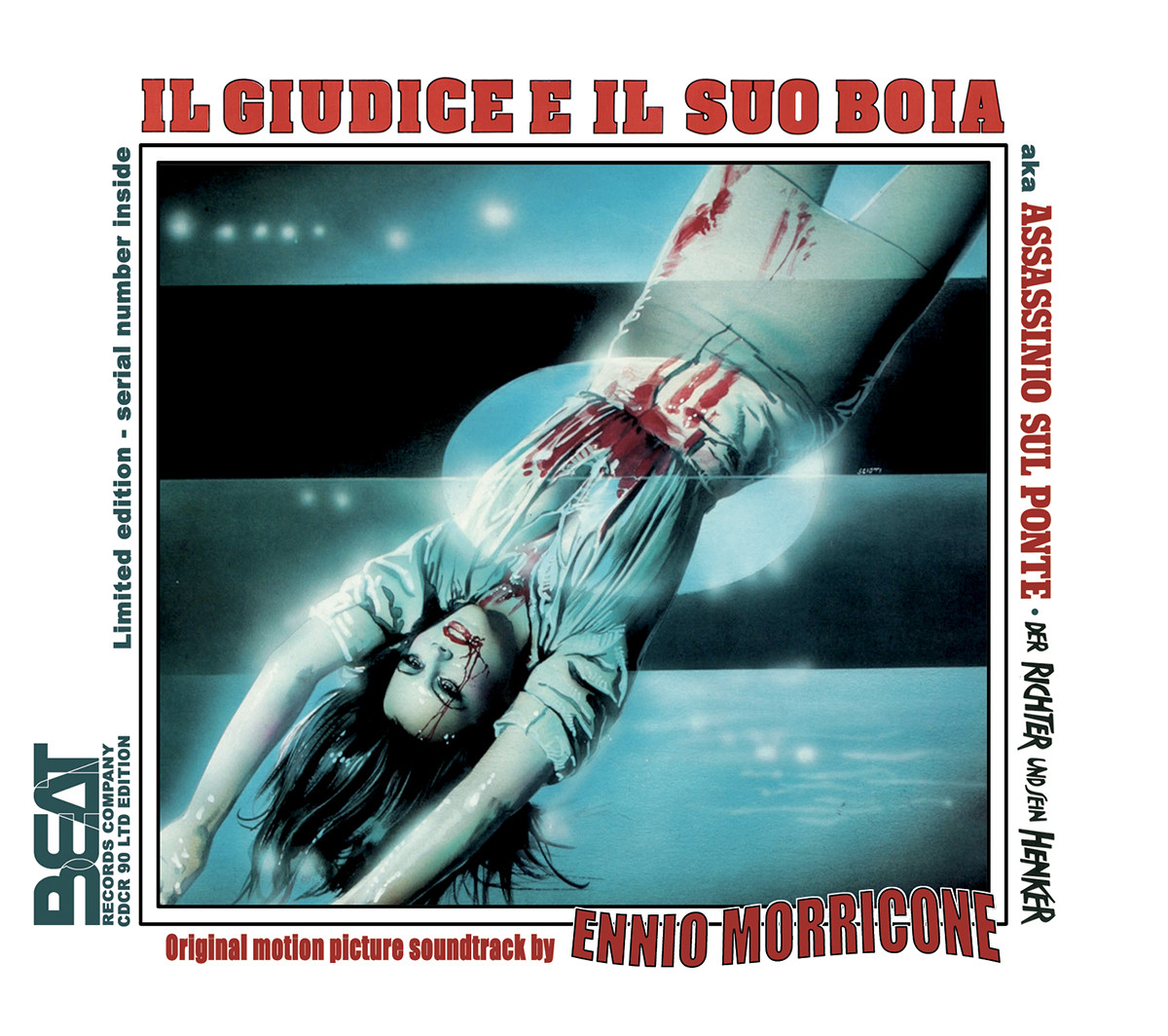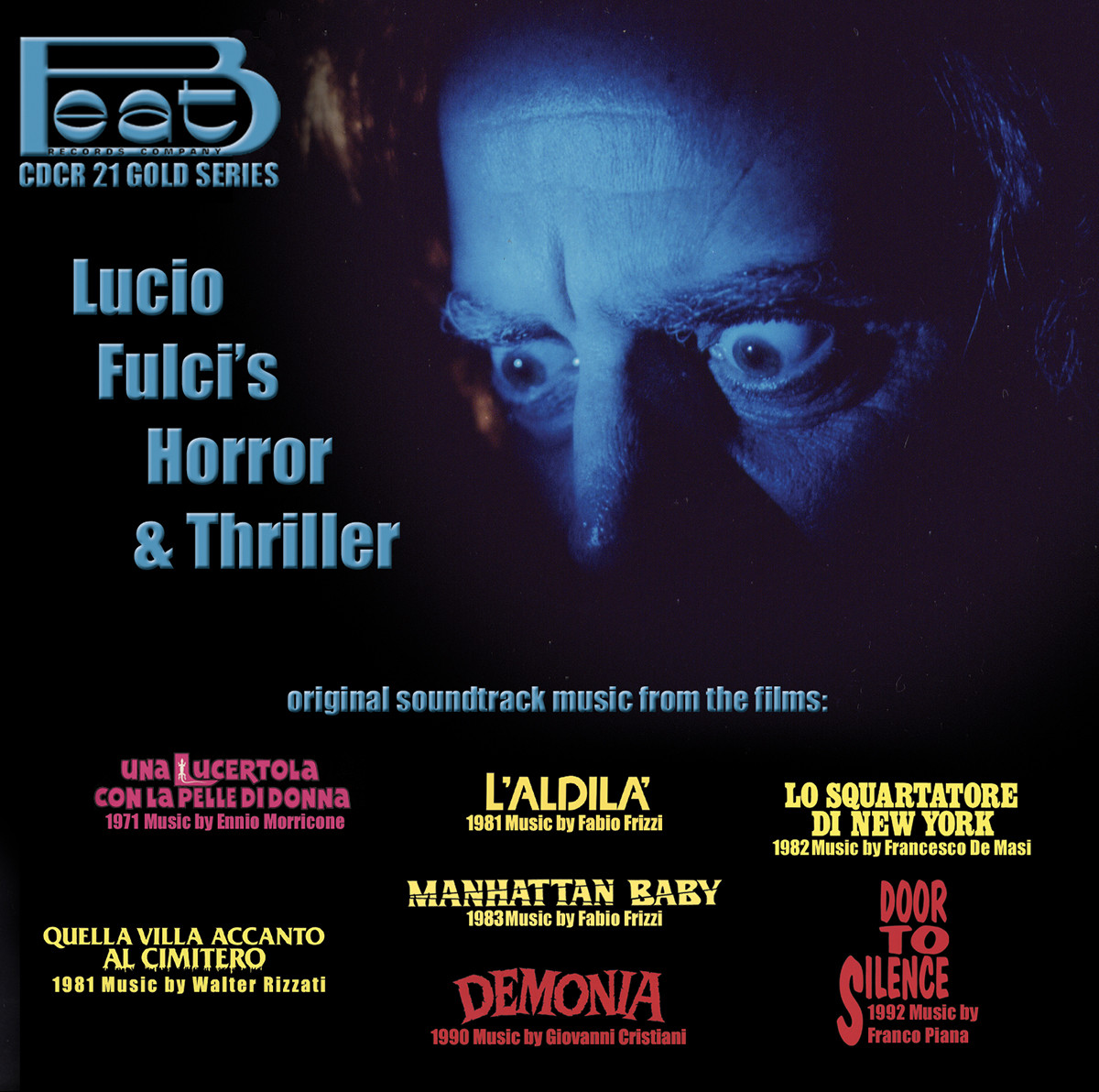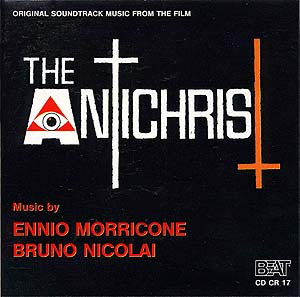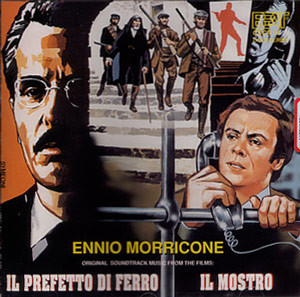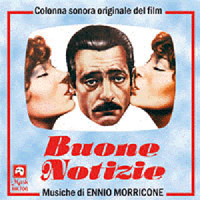
Buone notizie
| Code: | MK706 |
|---|---|
| Stock: | Available |
| Composers: |
Ennio Morricone |
| Category: | Original soundtrack |
| Format: | CD Audio |
| Record Labels: |
Mask |
CONTAINS 5 PREVIOUSLY UNRELEASED TRACKS. PLOT An anonymous officer of a Roman broadcasting company, (Giancarlo Giannini), spends all his working hours watching, one after the other, the six tv sets installed in his office, which broadcast only bad news about disasters and bomb attacks. The officer is married to a teacher named Fedora (Angela Molina). In addition to the daily sad watching of the six TV sets, he is also burdened by another problem: his lack of success with women. After fifteen years without seeing each other one day by chance he met an old friend named Gualtiero (Paolo Bonacelli), who is convinced that mysterious enemies are after him determined to kill him. After meeting with Ada (Aurore Clement), the wife of Gualtiero, the anonymous officer realizes Gualtiero is crazy, and he should be treated in a phsychiatric clinic. After having a love affair and relationship with Ada, the officer managed to convince Gualtiero to be treated in a Psychiatric Hospital. Ironically, Gualtiero is murdered inside the Hospital, and the police can’t resolve the mysterious case. MUSIC This soundtrack composed and conducted by Ennio Morricone is just as such intense as any other score composed by the Master. This music involves the audience so deeply inside the plot. It captures the viewers mind, and makes them to share in the drama from the first to the last shot of the movie. Maestro Morricone is not new to this kind of magic. If we close our eyes and we indulge in our memories, we will have the feeling of famous notes, such as those of Once Upon a Time in the West ...., Metti una Sera a Cena, Canone Inverso, "The Untouchables, The Desert of the Tartars , H2S, The Legend of 1900, etc. What else can you say about such an important Master? He even won a special Nobel Prize for his music. CRITICS In its lurid gloom and his dark humor, it wants to be a reflection on the spectacle society in which life - and reality - is destroyed in the simulation itself. The Film is a failure when the crumbling of traditional narrative becomes crumbling of ideas. Among the characters, Paolo Bonacelli and Ombretta Colli are all right. A comedy, a grotesque metaphorical pantomime: in short, one outburst. Petri is not among those escaping from their problems, he uses them as he can, according to the circumstances. It acts in the narrow space that separates facts from moral revolt, the mystery of indignation. Sometimes, in the highest and most spectacular peaks, it comes out a kind of expressionism that distorts the facts with grin (Indagine su un Cittadino al di Sopra di Ogni Sospetto, Todo Modo). . And now? The disorder, the mystery, the grin will turn against the author, the metaphor becomes rarefied yet clear, the show is a private fun, pungent and puzzled together. “The sense of death was an obsession. At times the feeling of death was so strong that I could not eat and sleep." Movie director Elio Petri, multifaceted and complex personality, is not just a director of movies. His personal obsessions and his disillusionment with societies, which it is hard for him to recognize and acknowledge, take shape through concepts written in any order, as if they were just notes: the fear of death, a latent depression, and the concerns in face of a historical reality that has betrayed the revolutionary expectations, condense into a magma difficult to penetrate, so that only the abandonment to a planned unpleasantness can give us, and give him, those so coveted answers. "To make a film you have to have now a lot of madness and a lot of love for the cinema. And this is probably the only positive aspect of the matter." In the last period of his life (it will be struck down by cancer at the age of 53, November 10, 1982), the director, finds himself caught in an impasse in which the walls of the inability to communicate on the one hand and the fear of death on the second, crush his inspiration bringing out only the sickness and the suffering of the artist. This is why the film should take different paths: no longer a metaphor but existential analysis, no more dynamism of the staging but static (close-ups overflowing), no more search for success but a disorganized and grinning reflection on a private show, as that of married life. The film BUONE NOTIZIE, (1979), aka THE PERSONALITY OF THE VICTIM, is a testament in which disease, depression, feelings of inadequacy and fear of death are overlapping and translating, passing from the mind of the director to the film. The protagonist is nameless because it is an archetype, an ordinary citizen, an obscure television officer, which is not even understood what is his job: a man sitting in front of his televisions, who barely keeps its robotic professional autonomy but also a confused person, full of fears (of darkness, sex), always looking for a quiet corner (represented by the sunset). A man obsessed with time passing and terrified by the possibility of death, evoked by the first shots when, during the brownout says, "Look here, looks like a grave, a grave...” In his office on the right wall there is Guernica, a painting by Pablo Picasso, symbol of the horror caused by wars, but he is a victim-offender of the society that devours itself, without leaving space to the feelings and human relations, and that is why he believes his friend Gualtiero to be a fool. … Gualtiero is dead and the news shows the reconstruction of the hypothetical path of the murderer. The final scene is still full of questions, which appear in the form of tickets, contained in an envelope. Perhaps the only possible answer is that the folly of Gualtiero, a romantic able to involve his friend in an improvised and disjointed waltz (in a poignant and melancholic scene), danced on the edge of the abyss, while in one summary and deep sentence Gualtiero affirms the truth that nobody wants to hear: We believe we continue to dance, in fact we are crawling like worms...

